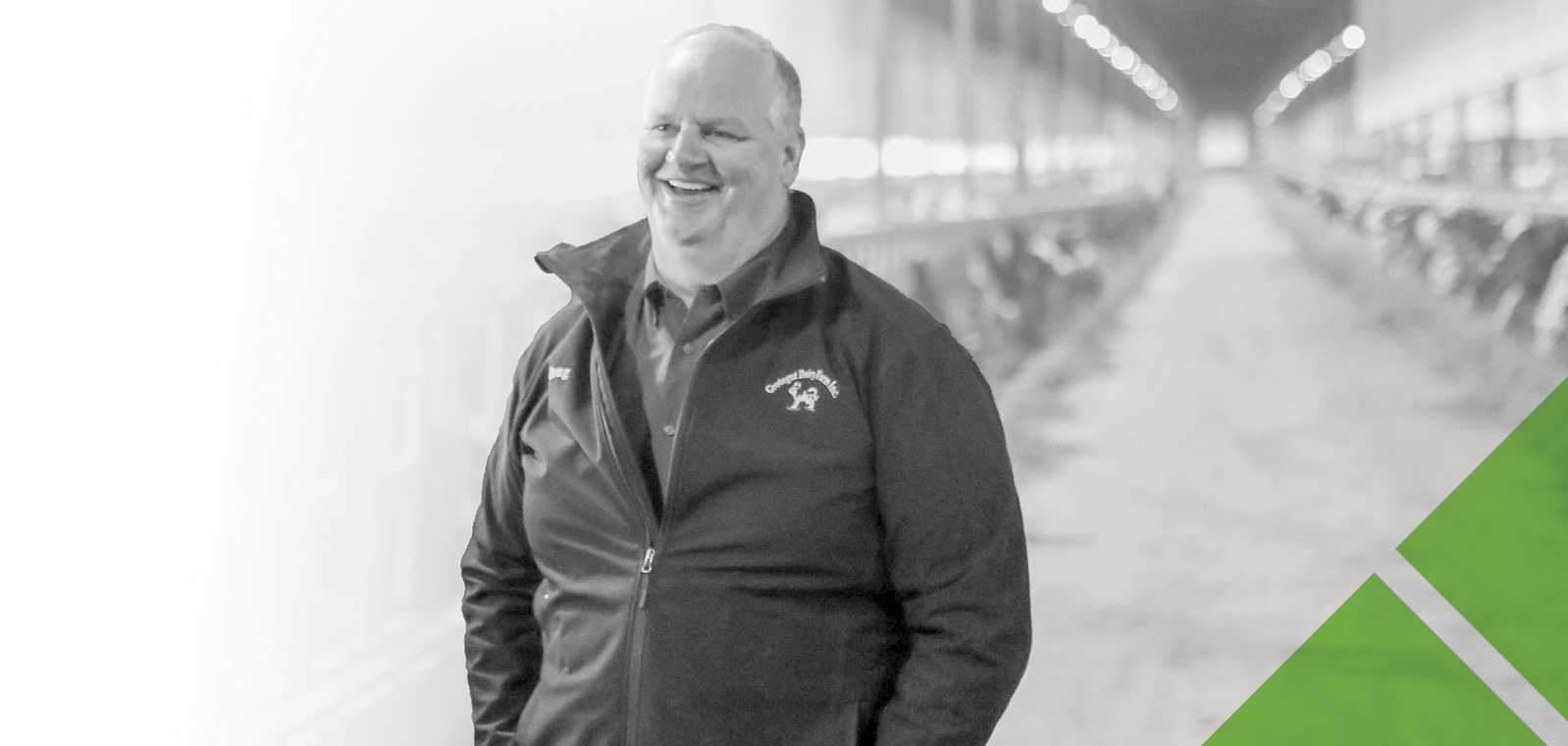
Farmers are always striving to improve, and at Grotegut Dairy Farm in Newton, Wisconsin, they are using modern technology to make their farm even more sustainable.
In 2008, Grotegut Dairy Farm put in a methane (anaerobic) digester, which decomposes the manure into a gaseous biogas product.
“At that time, we were able to sell that electricity back on the grid, which worked well,” said Doug Grotegut, of Grotegut Dairy Farm, Inc. Doug, who farms with his son Kip and nephew Eric, milks about 3,000 cows and grows feed for them on approximately 3,300 acres.
In 2010, they expanded their dairy and put in a second digester, which continued to produce electricity for another five years.
The Groteguts then had the opportunity to partner with DTE Biomass Energy, which is a Detroit-based energy company, and Rev LNG, LLC, which is a pioneer in the liquid natural gas solutions market.
Together, they create renewable natural gas from methane made by cow manure. First, the digester captures methane from the manure. Next, the methane is refined to meet quality standards, and then it’s injected into a natural gas transmission line.
“We run the digesters ourselves. They take 100 percent of the dirty gas off the line and run it a half mile up the road to a cleaning site,” Doug said. “Then it gets scrubbed, cleaned, compressed, and injected into the main line.”
Once injected, it’s then monetized by selling the gas along with the low carbon fuel standards (LCFS) credit , and renewable identification number (RIN) credit.
Previously, there was a carbon credit offset when the gas produced from the methane digester was used in a methane engine/generator. The digester was taking methane out of the atmosphere, but it still resulted in an emission in the form of exhaust. The new way is even more sustainable.
By doing it this way, the gas goes into a pipeline, and for instance, that molecule of gas can go all the way to California to fuel vehicles like a compressed natural gas (CNG ) semi truck.
“This method is actually pulling a diesel semi off the road in favor of a CNG semi,” Doug said. “As a result, the offset is worth about ten times as much as a regular carbon offset - depending on the market - because we’re pulling diesel fuel emissions off the road replacing with vehicles running renewable energy.”
The process works well for Grotegut Dairy, so they’re able to concentrate on their area of expertise, and their partners can work on their area of interest.
“They deal with the brokers and the carbon credits now,” Doug said. “I want to milk cows, take care of them, and take great care of the land. We’ve had good luck with the digesters and the program so far.”
Recycled bedding
Before the Groteguts started with their first digester, they were buying manure solids. When they installed their digester, they were able to start making their own recycled bedding.
“The digester heats the manure to 102 degrees for 21 days, and that kills the bugs and pathogens in the manure,” Doug said. “We run it through a screw-press, which takes the water out. This takes it down to 70% moisture, and that’s what we use for bedding.”
Using this method, the manure is recycled for a positive use, and they don’t have to purchase a non-renewable resource to bed down their cattle.
“Every stall gets bedded three days a week, and we have cross vent along with some tunnel vent barns, which helps it dry,” Doug said. “We’ve been happy with the results.”
Technology
The latest innovation the Groteguts have embraced is using technology to get their cost of feed production down. They did that by investing in technology that helps them determine their exact expenses.
“We are using Granular Insights, which is software that combines GPS and technical information from all of our equipment to calculate cost,” he said. “It records fuel usage, how many hours equipment is run, where it goes, and it tracks it all so we get a calculation of how much it costs us to grow an acre of alfalfa or corn.”
Since it’s difficult to track costs, this is a modern way to get a handle on expenses. It also helps with decision-making on purchasing feed, plus buying or renting land.
“Some years corn prices are high, and you know you could produce it yourself cheaper,” he said. “Some years it’s low, and you know it would cost more to grow. By having all of this exact information, we can decide what best to do.”
In addition to the software, they also use the yield monitor on the choppers, plus every load gets weighed for exact data. The measurement tools make the process less of a guess by being more accurate.
“By weighing every load on the scale, we can get a more exact number,” he said. “We can know exactly what goes in and out through the mixer, and we can better calculate our shrink.”
Financial services officer Dan Gitter has been with GreenStone for 24 years, and he has been working directly with the Grotegut family for over a decade.
“I’ve known the family for quite a number of years, and they have a long track record of evaluating opportunities and determining if they’re a good fit for their business,” Dan said. “They are very capable of making the decision to discontinue something they’ve been doing if it’s no longer a good fit and taking a look at new opportunities to evaluate if it will add to the bottom line.”
Dan, also a Wisconsin native and from a dairy farm, appreciates the innovative nature of the Grotegut family.
“It’s been excellent working with them,” Dan said. “We have open communication, candid discussions about the direction they want to go, and we share insights to try to come up with the best financial solution.”


